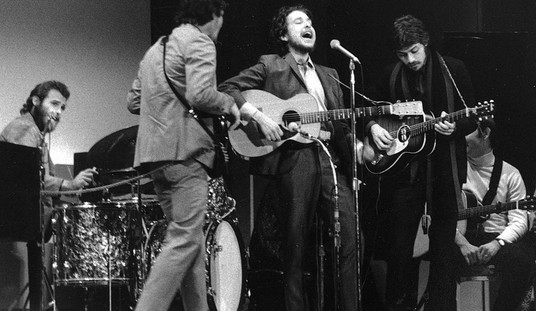If you shake any random tree these days, a pundit who wants to tell you that the Republican primary is over will fall out of it. Alas, this is even true of many long-time conservative and/or Republican pundits. What these alleged experts in the media are missing is the fundamental way the Republican primary electorate has changed since 1988. Or, heck, since 2008.
On the one hand, it’s hard to blame the media for their failures. After all, in any other primary year, the Republican primary really would be over. Historically, the Republican primary has been much less raucous and drawn out than its Democratic counterpart, with Republican voters tending to get in line pretty quickly after the first few contests. What the media has missed has been a gradually accelerating resistance in the Republican party to acceptance of the front runner early on in the process.
So today we are one week past Super Tuesday. Right now, the RCP average of polls (nationally) shows Trump at 37.5%, Cruz at 19.8 %, Rubio at 18.3%, and Kasich at 9.5%. That includes the garbage CNN/ORC poll that inexplicably showed Trump with 49% of the national vote in spite of the fact that no state poll ever has given him 50% support.
Frankly, there’s one even semi-relevant poll in this mix, which is to say a poll that was taken after Super Tuesday and that reflects the exit of Carson from the race, and that’s the ABC/WaPo poll that shows Trump 34%, Cruz 25%, Rubio 18%, Kasich 13%.
Let’s take a trip back through time in the history of contested Republican primaries since 1988 and see how fundamentally different this race is playing out than any prior contested Republican primary.
First off, let’s look at 1988. People forget that although George H.W. Bush was sitting Vice President, Bob Dole attracted a lot of support from Republicans, especially in 1986-87 at the nadir of the Reagan presidency. But look at the polling average from that year, as it approached the Super Tuesday date of March 8, 1988:

As you can see, Bob Dole actually enjoyed a brief polling lead over Bush 41, but by the time actual votes started being cast, Bush 41 was at 50% and this thing was over. In fact, pollsters stopped even polling the race on March 2nd (six days before Super Tuesday) because Bush had amassed such a huge lead that there was no point. A candidate who reaches 70% in the polls is not coming back.
The next genuinely contested Republican primary (sorry, Pat Buchanan) was 1996. Super Tuesday that year was on March 16th. As you can see, by that time, the race was completely over as Dole was at over 70% in the polls. Really, the only serious threat Dole ever faced as the establishment pick that year was from Colin Powell, who never even ran.

2000 was even more of a washout for the non-frontrunners, as George W. Bush hit 45% in early June of 1999 and never looked back. John McCain got a boost from winning New Hampshire, but the race never got closer than 56-34% in favor of George W. Bush, and pollsters once again stopped even polling the race before Super Tuesday ever occurred.
Fast forward to 2008. This was the first year in living memory of most Republicans that the race was even a contest as of Super Tuesday (which was February 5, 2008). Even then, the race was more or less over with McCain at 42.8%, Romney at 24%, and Huckabee at 18%. By the time one week from Super Tuesday had rolled around, McCain was at 49%, Romney was out of the race, and the nomination was over in all but name. Nonetheless, Huckabee hung on in the high 20s for another three weeks or so until even he ultimately faded from relevance.
Still, even though the race was effectively over by the date of Super Tuesday, 2008 marked a fundamental shift in the way the Republican electorate approached the election. Recall that McCain wasn’t even in the national lead heading into the voting contests in 2008 – that was Rudy Giuliani. 2008 was the first year that the Republican who held the national lead when the voting actually started didn’t end up running away with the nomination.

Still the speed with which the party rejected Giuliani and settled on McCain was rather abrupt, as McCain went from third place to first place in the span of about 3 weeks and then never looked back through a continual ascent.
Nevertheless, the resistance to Giuliani (and to a lesser extent, the coronation of McCain) was a precursor to the unprecedented roller coaster ride of the 2012 nomination:

Note that for the first time, Super Tuesday on the Republican side occurred when there were two candidates within 10 points of each other, nationally. Furthermore, Romney did not pull away from Santorum until more than two weeks after Super Tuesday was over. This in spite of the fact that Santorum had not held elected office since an ignominious defeat in 2006, had very little money in his campaign coffers, and wasn’t particularly telegenic or exciting to anyone. In fact, a real argument could be made that the only thing that prevented Santorum from winning was Newt Gingrich’s refusal to exit the race until he had successfully protected Romney’s backside.
Now look at 2016. Note that the Republican electorate is even more resistant to Trump than it was to Romney in 2012:

Trump took a hit after losing Iowa, mostly recovered thereafter, and has been stuck at 35% ever since. There is absolutely no evidence of his ability to coalesce the remainder of the electorate around him to any degree whatsoever, contrary to both McCain in 2008 and Romney in 2012 (who remained on an upward trajectory even as Santorum stubbornly remained behind him).
This primary is fundamentally different from any Republican primary that has come before it. Republicans do not accept that Trump as a front runner must be treated with deference or surrendered to, as they have in virtually every previous year. The polling conclusively proves it. The media continues to peddle a narrative to the contrary because they want Trump to win. Trump winning the nomination is good for their ratings and also good for Hillary’s chances to win the election, so they are probably Trump’s most dedicated constituency.
Meanwhile, Republican voters who reject Trump should take heart that this thing isn’t over.













Join the conversation as a VIP Member